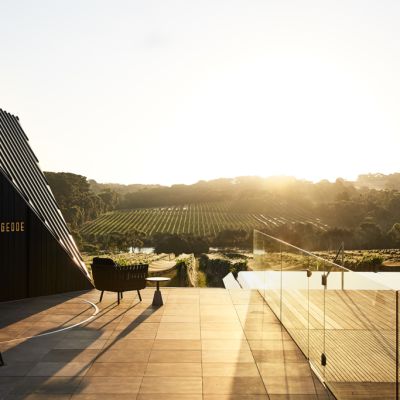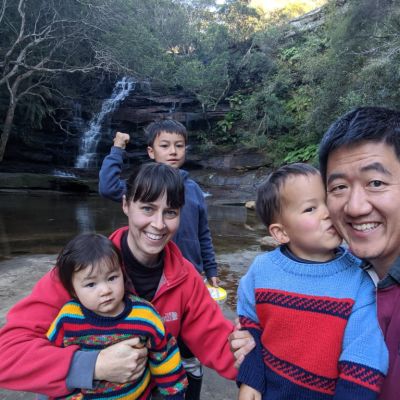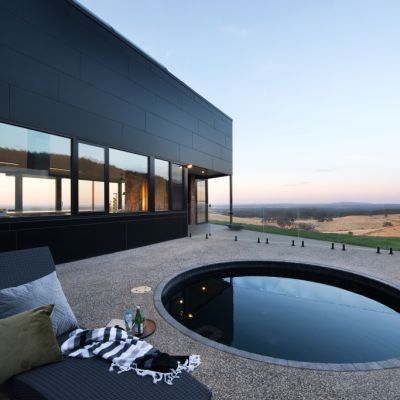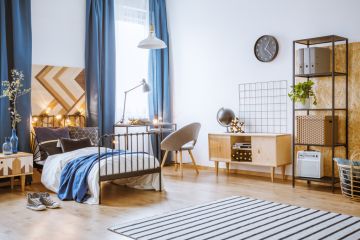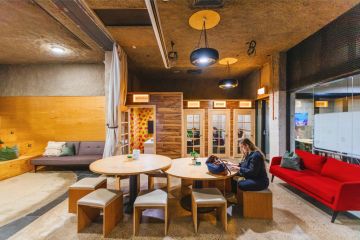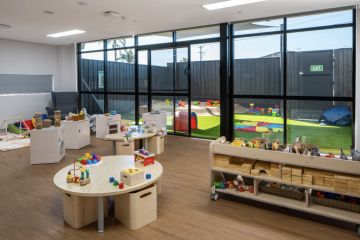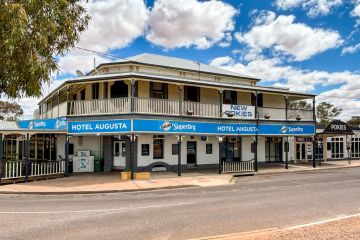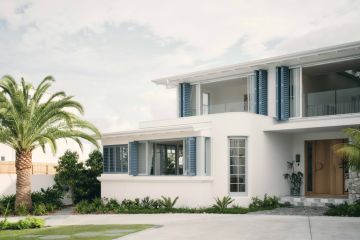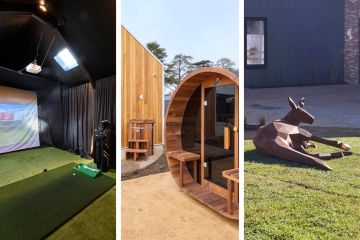Home Away From Home: Live the country dream at Daylesford Longhouse
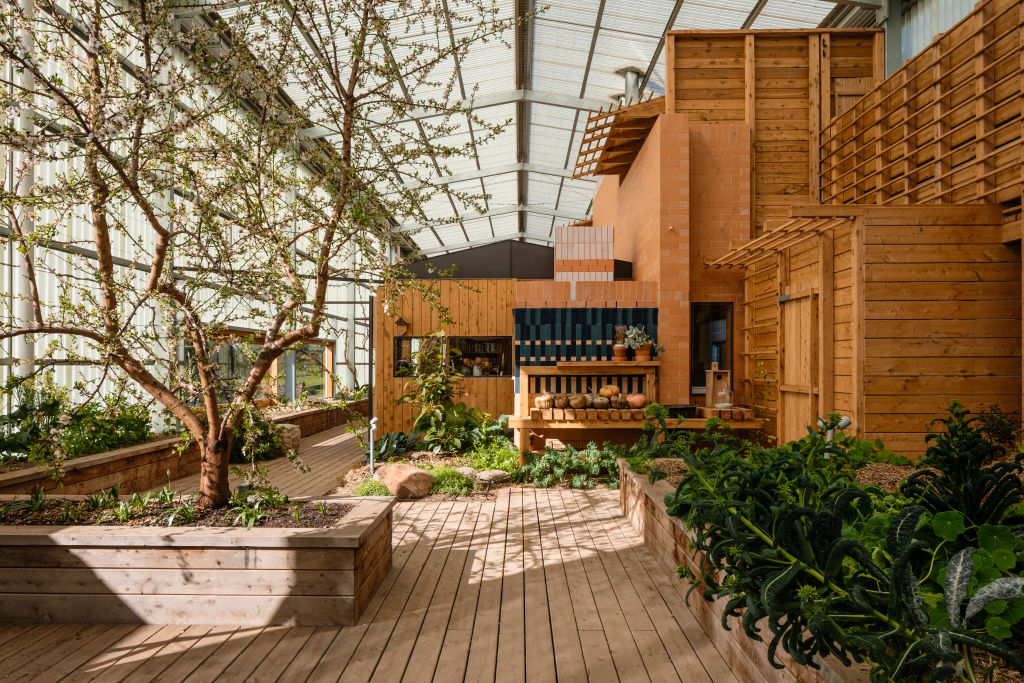
Inspired by the UK’s River Cottage and Babylonstoren Hotel in South Africa, the Daylesford Longhouse invites a holistic and sustainable way of living. In 2018, after nearly a decade of building, owners Ronnen Goren and Trace Streeter could finally proceed with their dream of country living.
“We ended up in Daylesford as a consequence of a long-distance relationship and came to a conclusion that if we were going to make a life together, that we would do that with a tree change,” Goren says. “The idea of the house was from a non-conventional family unit, as a same-sex couple with no kids; instead, family, friends, hospitality was important to both of us.”
The result was an endeavour together; the house representing the couple’s multiple interests. Goren shares – while eating a piece of cheese – that for him, offering food and cooking was essential, while Streeter wanted to explore his passion for animal husbandry.
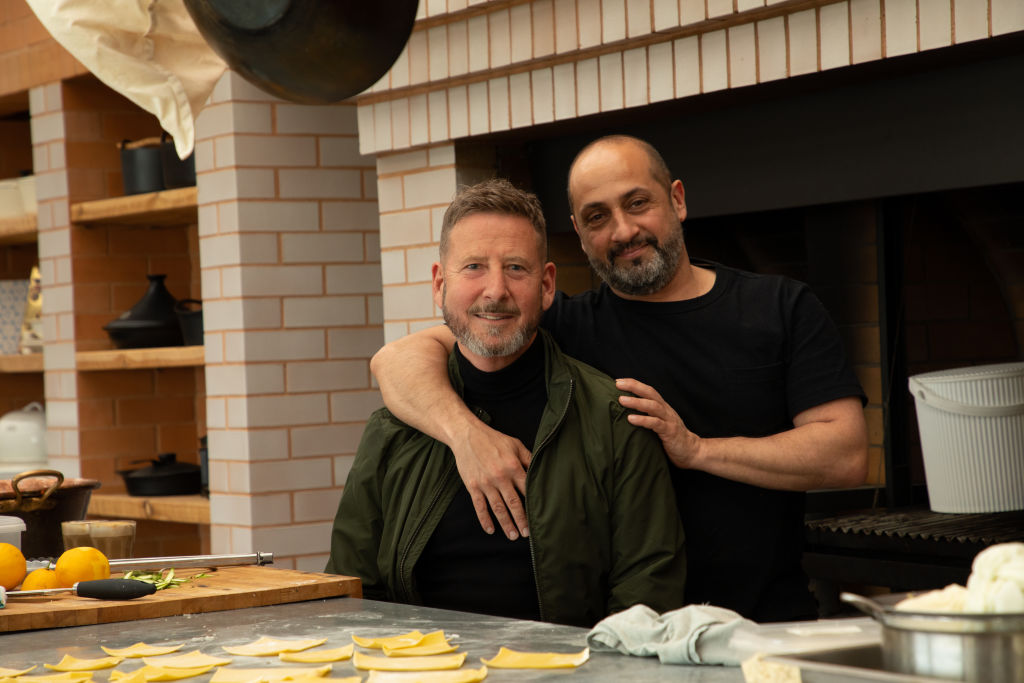
As such, the Daylesford Longhouse became a working farm, cooking school, and now accommodation.
Located on about eight hectares in regional Victoria, the house operates, self-contained, in a 110-metre-long prefabricated shed.
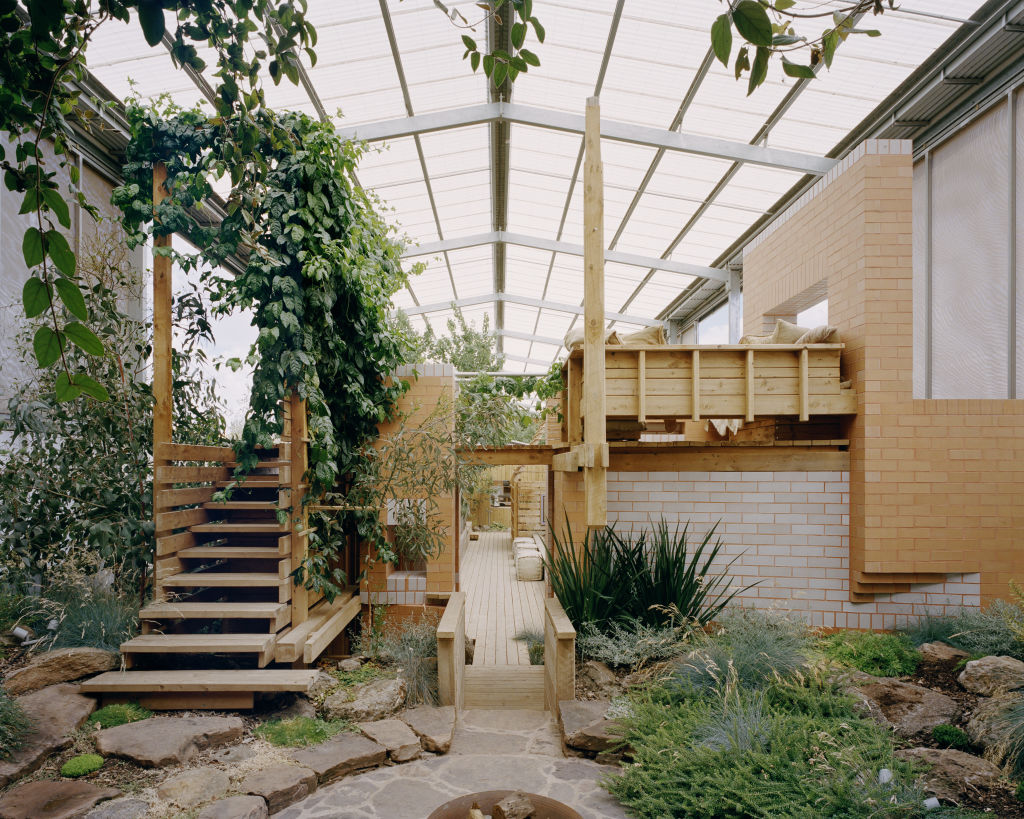
The main structure was constructed from Australian cypress pine, a material resilient to rot, while a translucent, glass-reinforced, polyester skin helps the epic indoor garden, offering built-in water and weatherproofing.
In the initial site visits, architects Partners Hill discovered grazing kangaroos and wallabies, harsh weather conditions and shallow soil; as a result, the Longhouse was designed to flourish from within.
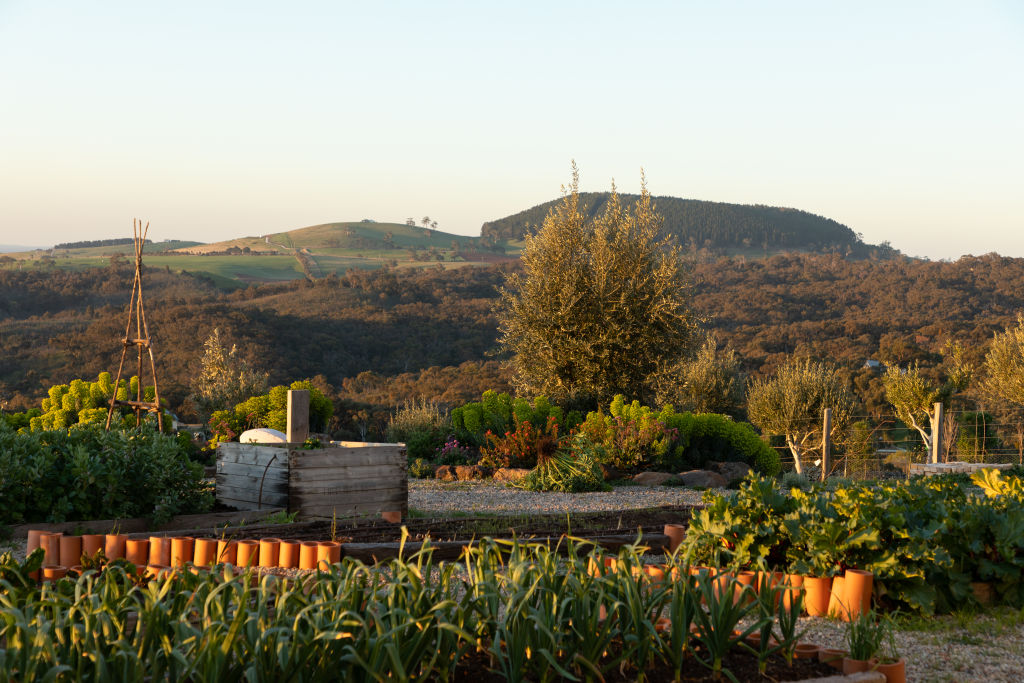
“It emphasises how much – or how little – you need for a few people to survive and thrive,” architect Timothy Hill says. Inside the farmhouse accommodation, the design takes casual nods from an old Victorian country home combined with Wes Anderson-aesthetics – pastel blues coat the walls, salmon tiles appear in the bathrooms, and pinks and purples offer a dramatic vintage style.
“The arrival at these coloured spaces are about a sense of surprise and delight, but also it’s very carefully calibrated around the seasons,” Goren says. “Winters can be very dark and grey, the environment can be cold and bleak, so the colours were very carefully deployed to be uplifting.”
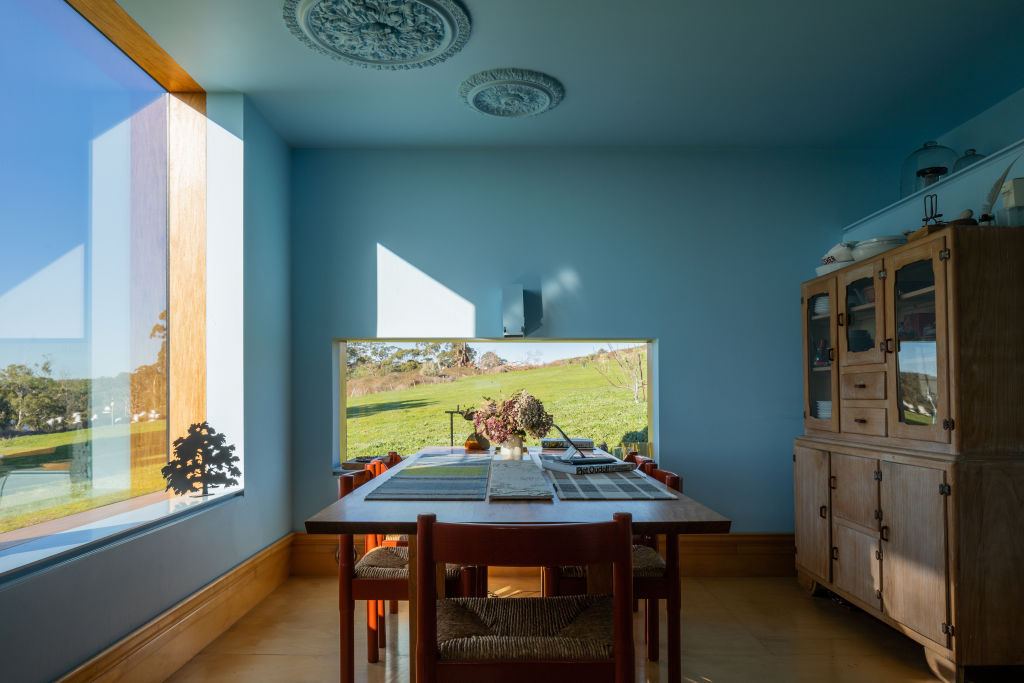
Utilitarian motifs contrast with ceiling roses, claw-foot baths and ornate skirtings. Notable details in the guest accommodation include a bed taking centre stage in a pastel blue-hued room, windows opening out to the vistas – this is a room for lying back and watching the views.
A terracotta brick bathroom is open to the elements and a pantry is occasionally stocked with cheese and salami from the farm.
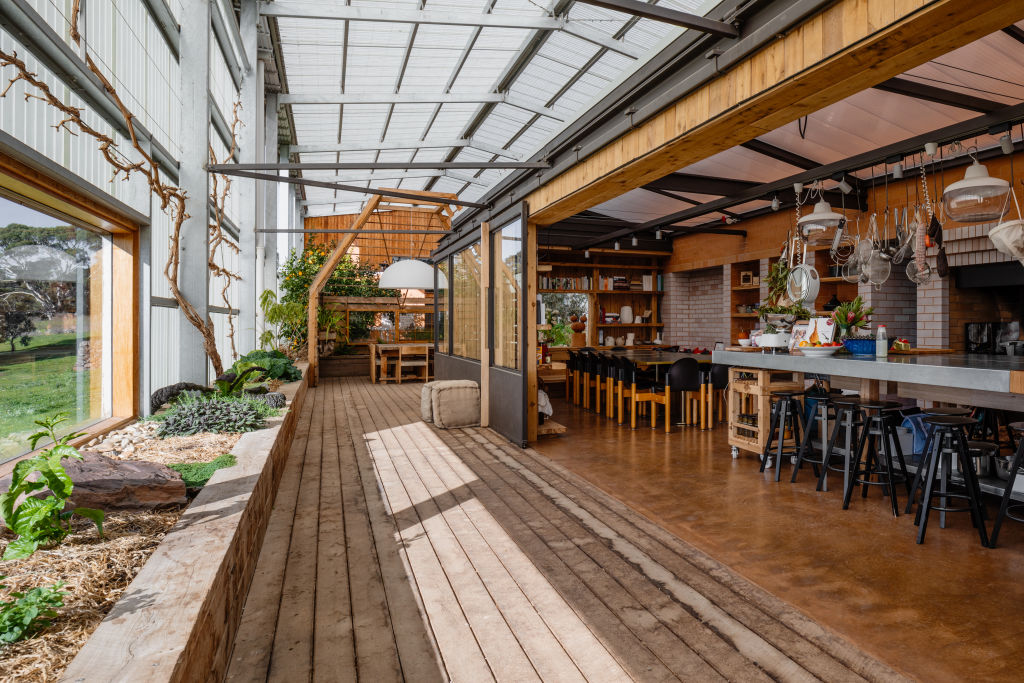
At the time of the interview, Goren and Streeter had welcomed only two guests before COVID-19 shut things down. “The first couple here were really into bread baking and were able to take veggies out of the garden,” Goren says. The second family were a corporate couple who used the accommodation just to sit back and enjoy the tranquillity. “[Our guest] just loved, every morning, to take his cup of coffee and sit in the paddocks with the cows and our four dogs,” Goren says.
The choice is yours at Daylesford Longhouse.
While in Daylesford …
Beppe
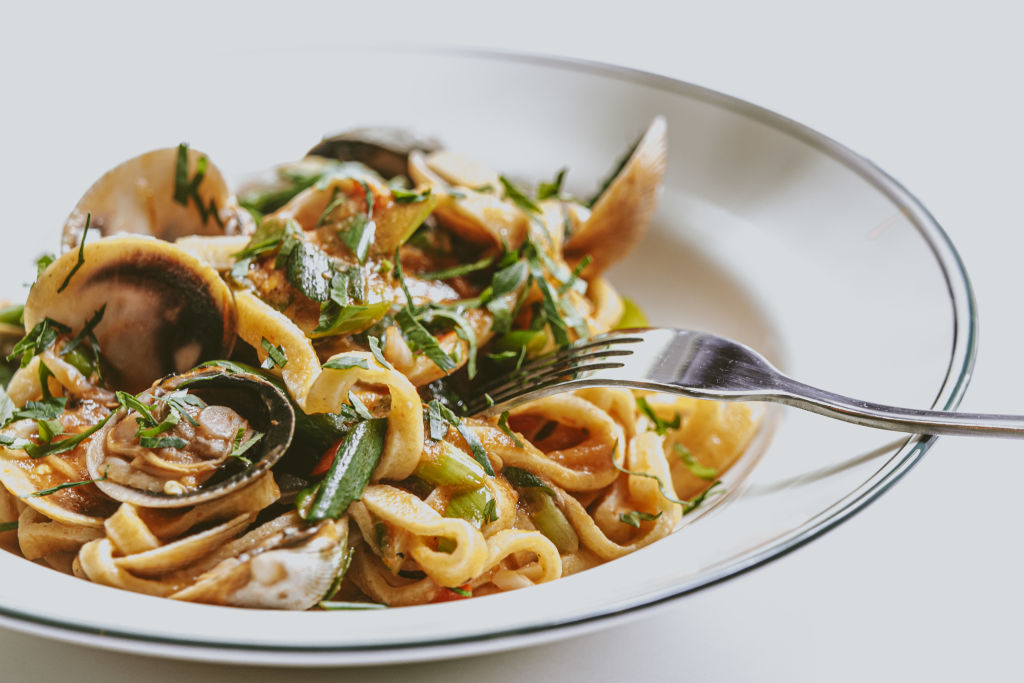
Beppe is the new trattoria in town that honours the Italian migrants who first settled in Hepburn area. Serving up wood-fired pizzas, big bowls of house-made pasta, and fresh salads, you’ll feel right at home.
Cliffy’s Emporium
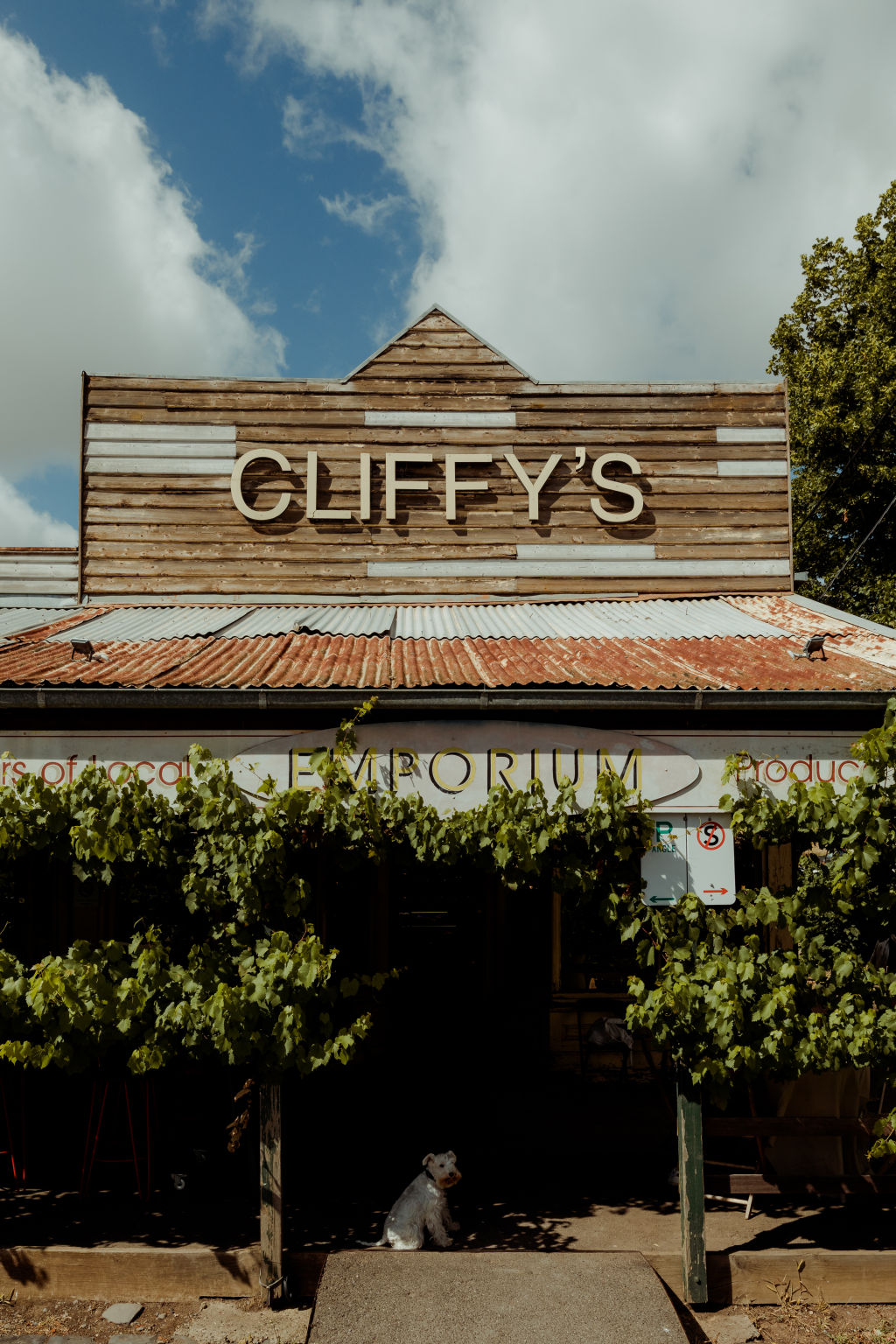
Opened in the 1950s, Cliffy Hauser’s general store in Daylesford is still a must-visit today, from its fresh fruit and vegetables dropped off by the farmers to locally sourced mineral water and preserves made in house.
Wombat Hill Botanic Gardens
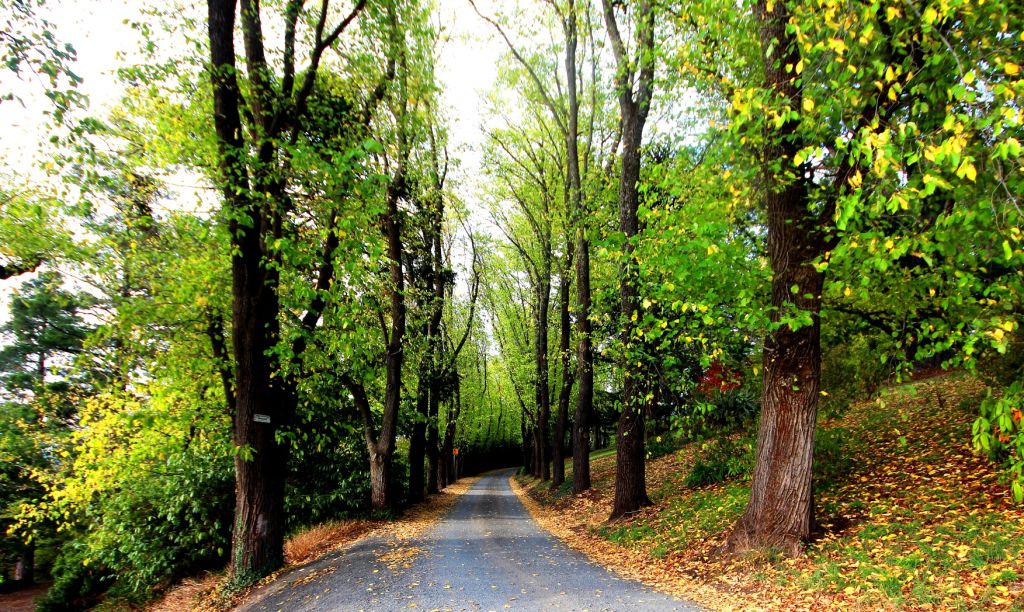
The surrounds of Daylesford are filled with ample walks – start small and enjoy the magic of the Wombat Hill Botanic Gardens. Perched on the top of an extinct volcano, the picturesque garden offers views over the town.
Cooking School at Daylesford Longhouse
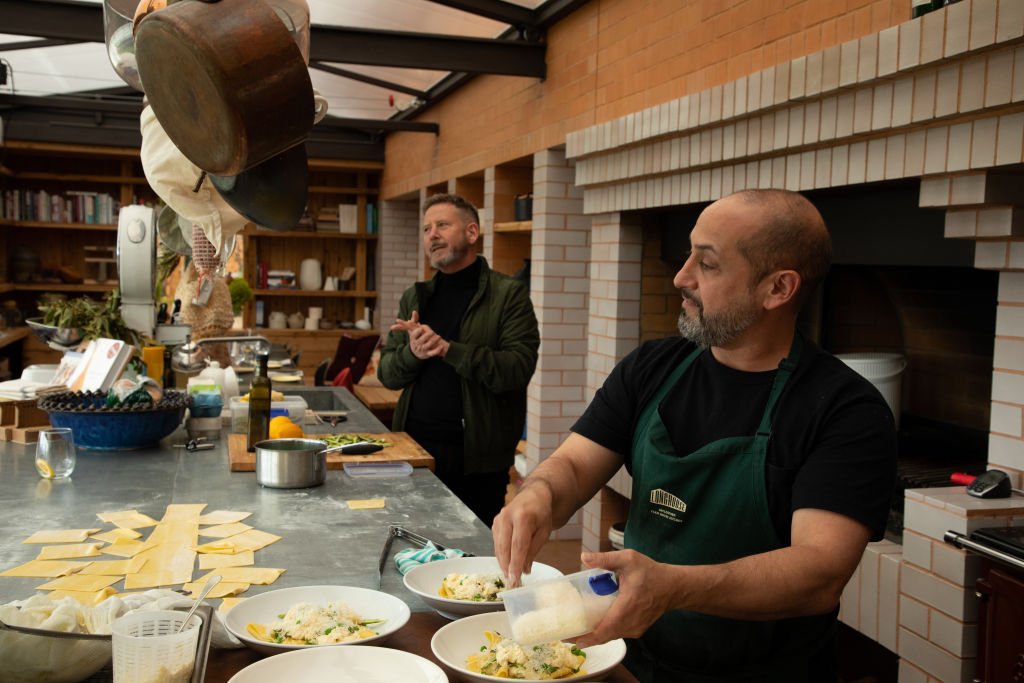
Time your visit at Daylesford Longhouse with a cooking school class, from a Sicilian pasta class to Singaporean curry making and even a two-day cheese-making class with dairy straight from the Longhouse farm.
We recommend
States
Capital Cities
Capital Cities - Rentals
Popular Areas
Allhomes
More
